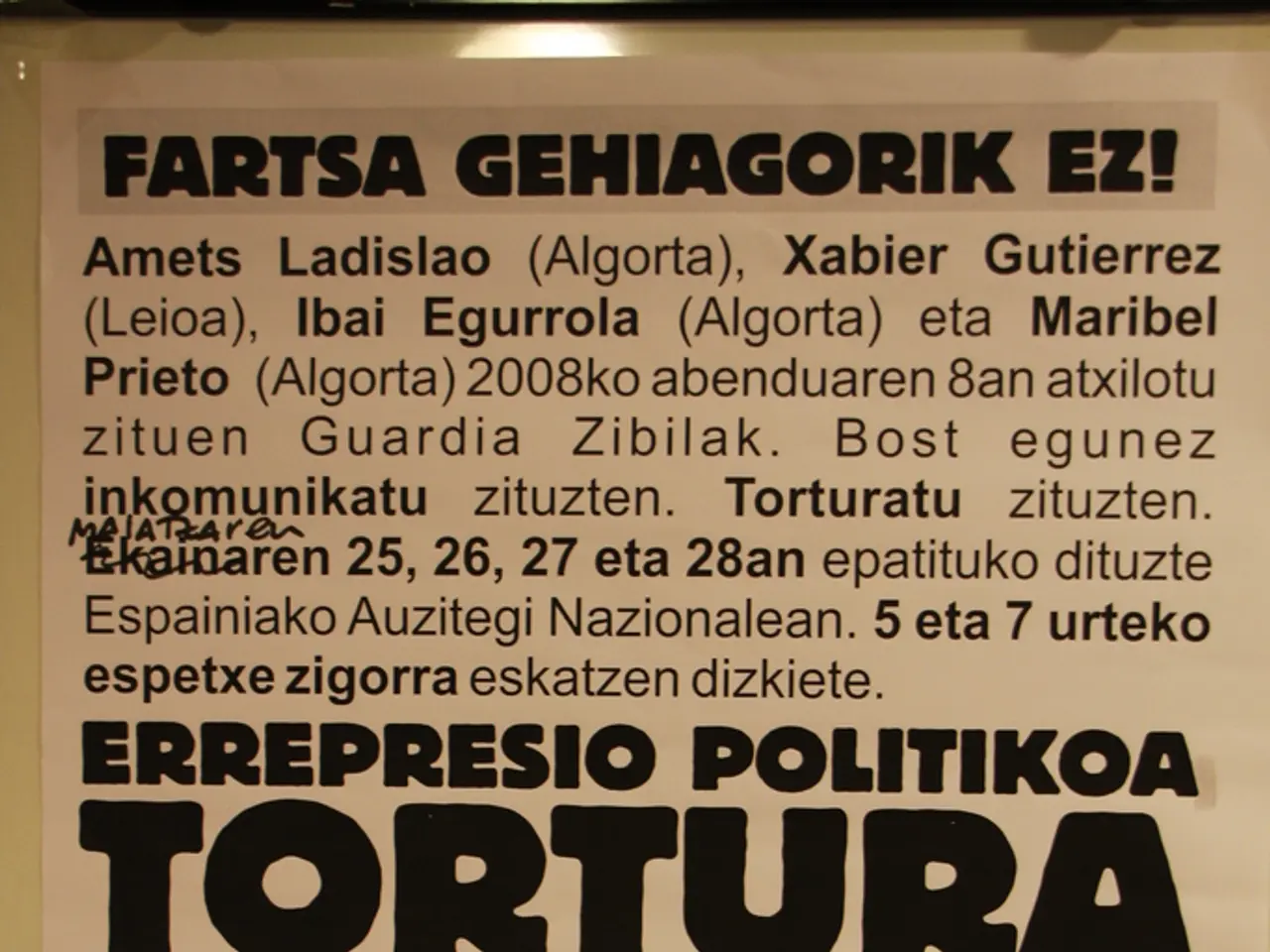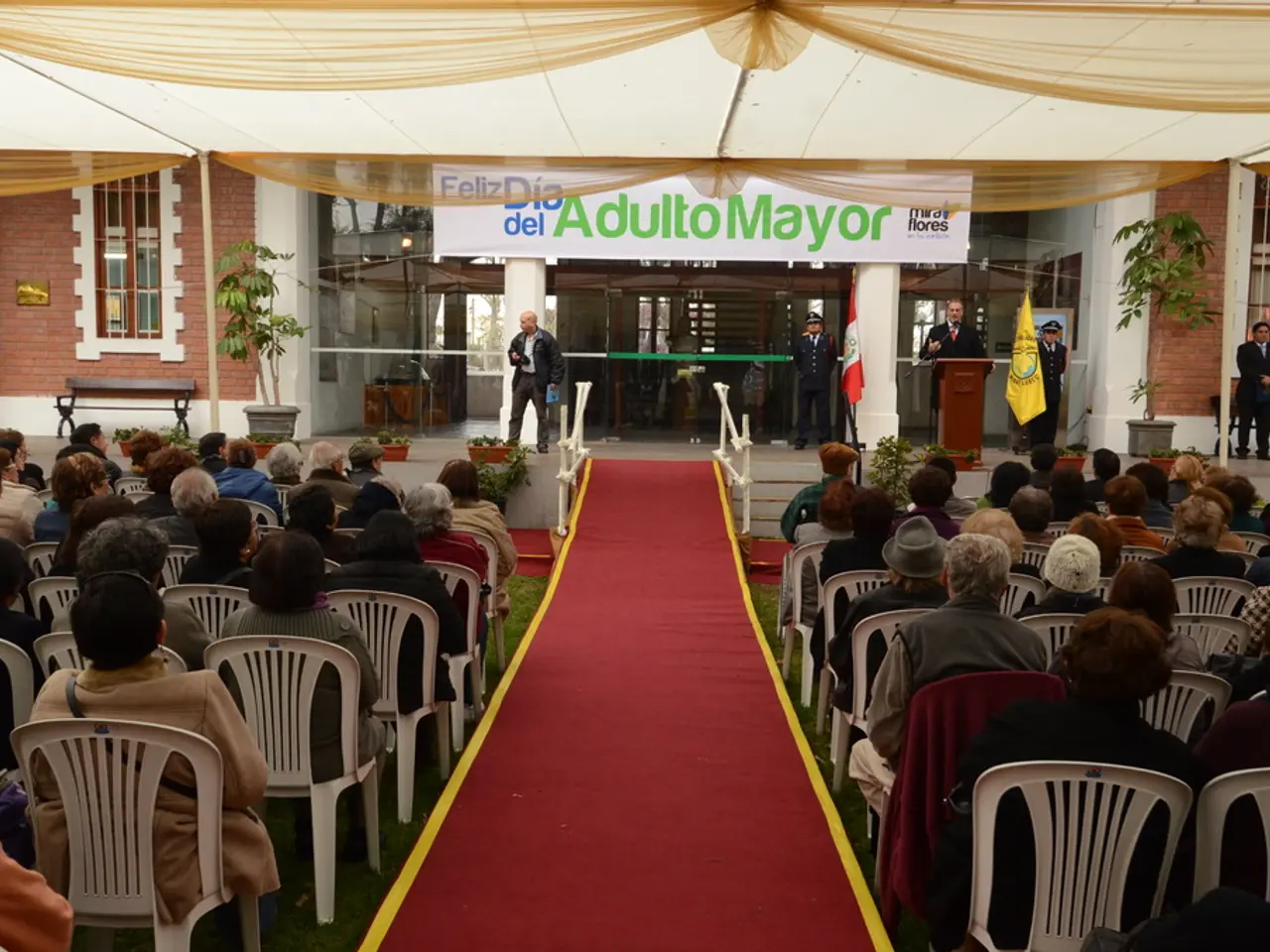Brosius-Gersdorf Stands Firm Amidst Criticism - Merz Aims for Discreet Resolution - Criticism targeted at Brosius-Gersdorf is met with self-defense; Merz aims to find a peaceful resolution
In a recent turn of events, the election of three judges for the Federal Constitutional Court in Germany has been postponed, following a series of political disagreements and criticisms against one of the candidates, law professor Frauke Brosius-Gersdorf.
### Controversy Surrounding Brosius-Gersdorf
The postponement was primarily due to concerns raised by the CDU/CSU parliamentary group regarding Brosius-Gersdorf's doctoral dissertation from 1997, which they claimed contained plagiarism. However, leftist politicians have dismissed these allegations as unfounded.
Brosius-Gersdorf's liberal views on abortion and her support for mandatory COVID-19 vaccinations have also drawn criticism from conservative and far-right parties. Additionally, her suggestion of a potential ban on the far-right Alternative for Germany (AfD) party, if legal conditions were met, further fueled opposition against her.
### The Postponement and Future Prospects
The ruling coalition, comprising the SPD and CDU/CSU, along with the Greens and the Left, agreed to the postponement, with the AfD opposing this decision. The future course of action remains uncertain, as the ruling parties lack a two-thirds majority without opposition support.
The Greens have called for a special session of the Bundestag to resume the suspended election of constitutional judges, as early as this week. The Bundestag was initially scheduled to fill three judge positions at the Federal Constitutional Court, with Brosius-Gersdorf among the candidates.
### Brosius-Gersdorf's Response
Brosius-Gersdorf has criticized the reporting about her as "not fact-based" and driven by the goal of preventing her election. She has also denied accusations that she does not grant unborn life the guarantee of human dignity and supports abortion up to birth.
The Union's criticism of Brosius-Gersdorf included her stance on the headscarf ban, particularly in relation to the constitutionality of a headscarf ban for teachers in state schools versus legal trainees in certain courtroom situations.
Jens Spahn, the chairman of the Union parliamentary group, admitted in a letter to his members that he and the leadership of the faction underestimated the concerns against Brosius-Gersdorf. Spahn also acknowledged that the coalition factions were not well-prepared for the emotionalization and polarization of the debate.
In light of these developments, the re-election of the constitutional judges will be a topic of discussion within the coalition to find a solution. Brosius-Gersdorf, for her part, has labelled the accusations of her being "ultra-left" or "radical left" as "defamatory and far from reality."
[1] https://www.tagesschau.de/inland/broisius-gerstorf-101.html [2] https://www.welt.de/politik/deutschland/plus188272119/Bundestag-wird-Brosius-Gersdorf-wegen-Plagiat-kritisieren.html [3] https://www.spiegel.de/politik/deutschland/broisius-gerstorf-bundestag-verzoeft-wahlen-an-federal-verfassungsgericht-a-45643139.html
The Commission has not yet adopted a decision on the application of Article 93 (2) of the Treaty regarding the ongoing political controversy surrounding the election of law professor Frauke Brosius-Gersdorf, whose nomination for a judge position at the Federal Constitutional Court in Germany has been postponed. This disagreement and the aftermath of Brosius-Gersdorf's nomination have become significant policy-and-legislation and general-news topics, reflecting the intricate interplay of politics in German governance.






